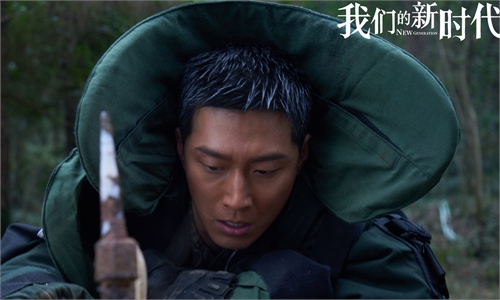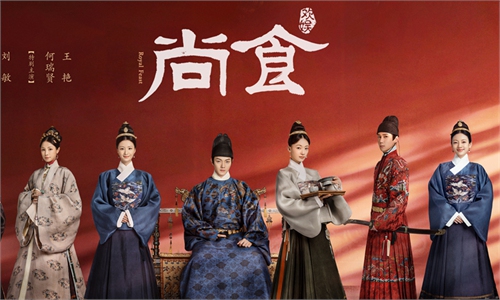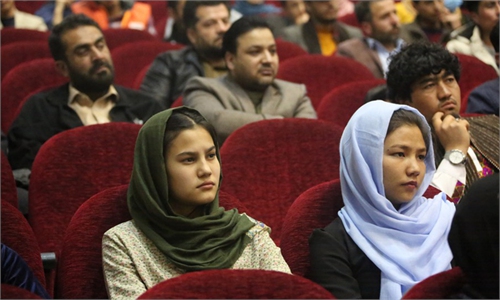ARTS / TV
Hit TV series discloses dilemmas and growth of urban females in China
Home is where the heart is

Promotional material for Life is a Long Quiet River Photo: Courtesy of IQiyi
A dozen years after Chinese director Teng Huatao completed his hit show Dwelling Narrowness about urban Chinese's insistence on owning an apartment, his camera is taking aim at housing in big cities again to show the importance of housing in today's society in China.The 35-episode TV series Life is a Long Quiet River is adapted from the novel of the same name by Teng Xiaolan, who is also the scriptwriter of the series. The last episode of the show, which focuses on an ordinary family in Shanghai, was released on streaming platform iQIYI and China Dragon TV Station on Monday.
Since its debut, the realistic drama has explored a variety of dilemmas in life, like housing, family conflicts and clashes between local urban residents and those new to the city, sparking huge discussion among Chinese netizens as each issue can make audiences think of the problems in their own lives.
"I like to play the role of observer when filming TV series instead of judging characters in order to present real life to audiences," the director emphasized the work's pursuit of a sense of reality during his interview with the Global Times.
The two Tengs have worked together to produce a TV work that aims to present the entirety of Shanghai, one of China's economic engines, and to explore the significance of struggle and the meaning of life. Looking at reviews online, it seems the duo have succeeded.
Sense of safety
The story includes the buying of a home and the effect on the three siblings of the Gu family, revealing the ups and downs in their lives and those of the people around them. It also portrays the experience and impact of buying a home on a spiritual and psychological level.
"Compared with Chinese people in 2008 or 2009 who worried about their first home in the modern city, now houses to some degree represent social class. What kind of home you can live in is a symbol of what kind of people you are," the director said. This new work shows the evolution of Chinese people's attitude toward housing.
But does having your own home create a sense of safety in urban life?
The TV series tries to display different possibilities to audiences through the Gu family's stories, proving that besides homes, people find meaning and security in their careers and finding inner peace.
After the youngest son in the Gu family dies, his wife, who was obsessed with buying a house, begins to pursue a career by opening a retirement home for the elderly.
Originally from outside the city, her starts to grow more comfortable in Shanghai by running the retirement home and builds a better relationship with her new family.
The director said that after not filming a TV drama in 10 years, he wanted to explore problems that can resonate with audiences.
To make things more true to life for the performers and to get a better performance from them, Teng hid the cameras while shooting a scene in which the daughter-in-law goes grocery shopping in a market.
Women's issues
The two leading roles of the TV series are both women. One is the eldest daughter, Gu Qingyu, played by actress Tong Yao, and the other, Feng Xiaoqin, played by Hai Qing, is the wife of the younger son.
Gu is a local resident in Shanghai, while Feng moves to the city and lives with the family after getting married to Gu's younger brother. The two women have many conflicts over money and the house.
Gu is an independent woman with a successful career and high income, while Feng is a housewife who has to take care of the daily life of the family.
They also have their own problems when it comes to income, raising kids and marriage. The two characters show the different kinds of women in society, but both can get sympathy from viewers as they have their own problems, including a heavy burden from housework and the pressure to get married.
The scriptwriter told the Global Times that she actually respects these two roles as they do not surrender even when facing so many problems.
Feng was a housewife but the death of her husband forces her to head outside and find a job as a delivery person to help out with the family expenses. The hard work helps Feng quickly grow stronger and finally she discovers her true passion, taking care of the elderly.
Gu is trapped in chaotic relationships with men and her marriage also had problems, but she is rational enough to finally strike a balance and find peace.
The scriptwriter said that the two roles display the growth of urban women amid pressure from the outside world.




